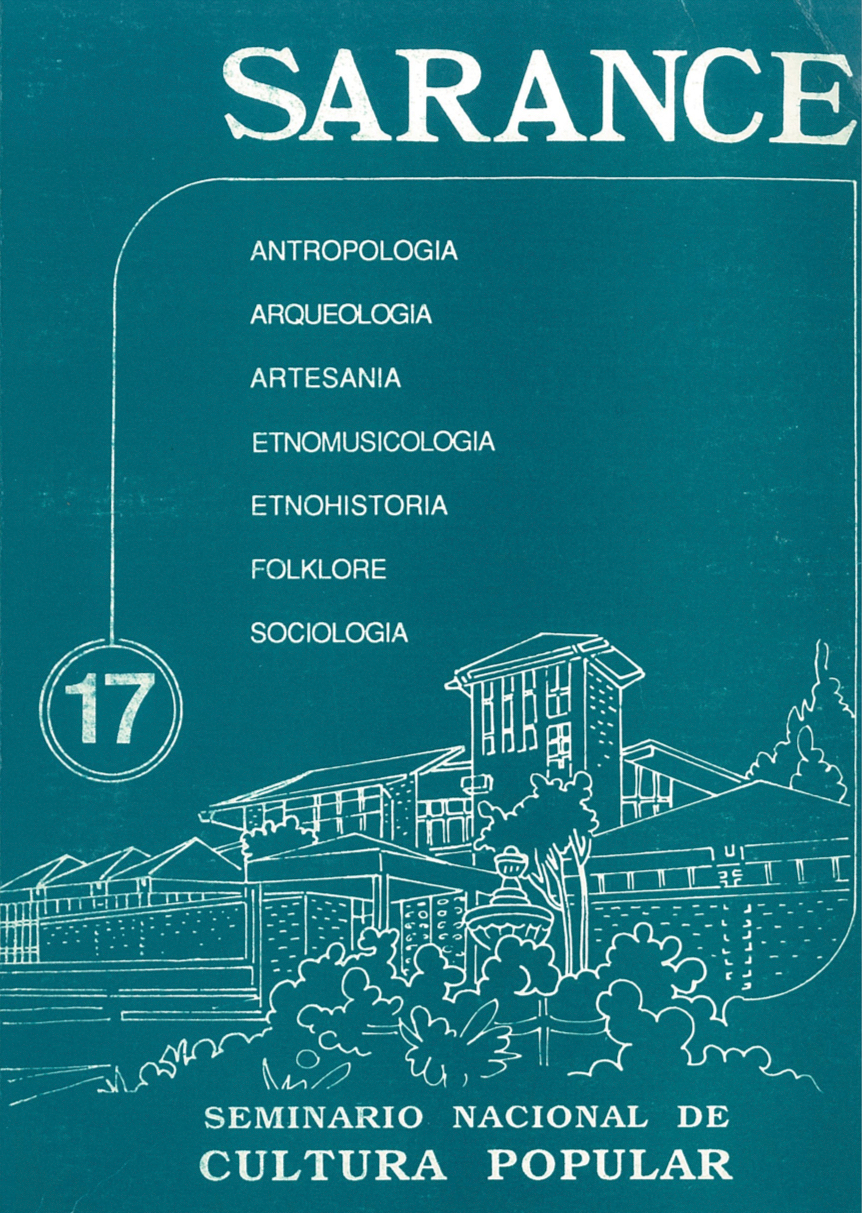Abstract
The fandangos, dances of our distant grandparents that offered so many delights to some and disappointments to others, force us to go back to the time of Spanish colonialism. It is easy to imagine the boredom and monotony that prevailed in these superstitious and beatific peoples, whose fundamental distraction was given by the church and the monks, by the processions and the sermon. It was natural for some people to seek a bit of liberation and breaking the traditional, seek joys and satisfactions that, although not pious, were the reason for living. And what better than the fandango, that with music, spicy little flasks and suggestive dances, gave escape to the ardent passions of the couples of those times.

This work is licensed under a Creative Commons Attribution-NonCommercial-ShareAlike 4.0 International License.
Copyright (c) 1993 Array

